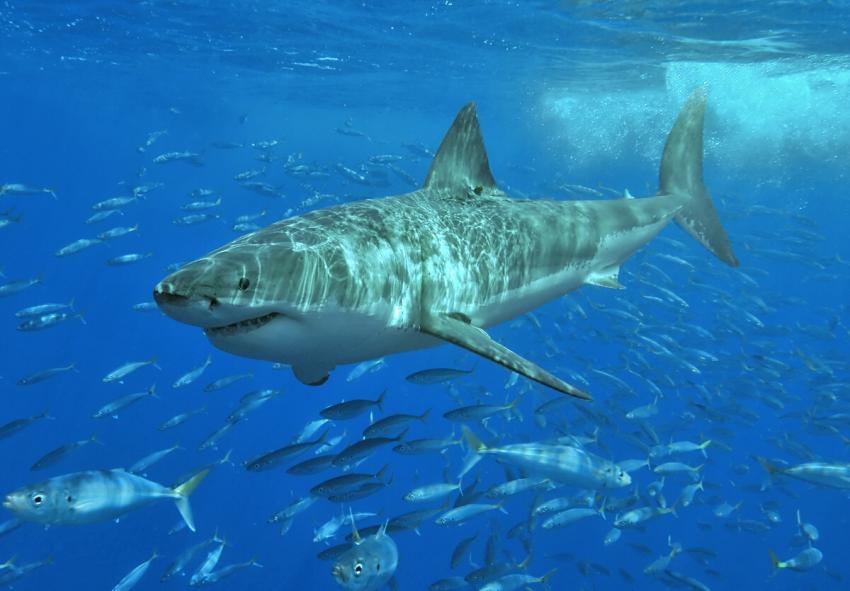

A new study led by CSIRO, Australia’s national science agency, has revealed white shark gender is determined by X and Y sex chromosomes.
The researchers developed a robust method to find sex chromosomes in a shark’s genome and a new PCR test that can be used in labs to sex white sharks from tissue biopsies.
Dr. Floriaan Devloo-Delva, postdoctoral research fellow at CSIRO’s Australian National Fish Collection, said the team developed a bioinformatics tool named “sexy_markers” that uses a statistical method to search DNA data for sex chromosomes.
The team then used sexy_markers to search for sex chromosomes in a large sample of white sharks (Carcharodon carcharias). The work is published in the journal Conservation Genetics Resources.
“We discovered that sex determination in the white shark is driven by genetics, not by temperature like in crocodiles or turtles,” Dr. Devloo-Delva said.
“Our study showed that the white shark has X and Y sex chromosomes. Males are XY and females are XX.”
Sex determination varies widely across the animal kingdom and can involve genes on sex chromosomes, egg incubation temperature or even the proportion of males and females in a population.
Some shark species are known to have sex chromosomes but the molecular mechanism behind sex determination in sharks is largely unknown. To date, sex chromosomes have been examined in only 94 shark and ray species (<8% of the estimated 1,260 shark and ray species worldwide), including the white shark, but this research used an old technique and small samples sizes (n=1–3).
“This knowledge reveals more about the biology and population ecology of white sharks, and will help management agencies better understand the species,” Dr. Devloo-Delva said.
White sharks are listed as “vulnerable” on the International Union for Conservation of Nature (IUCN) Red List.
“This new test will be useful for sex identification of juvenile sharks without developed external sex organs for population monitoring and conservation, or using samples obtained from processed carcasses in fisheries or the fin trade,” Dr. Devloo-Delva said.
More information:
Floriaan Devloo-Delva et al, An R-based tool for identifying sex-linked markers from restriction site-associated DNA sequencing with applications to elasmobranch conservation, Conservation Genetics Resources (2023). DOI: 10.1007/s12686-023-01331-5
Citation:
Scientists develop ‘sexy_markers,’ a bioinformatics tool that reveals white shark gender (2023, December 6)
retrieved 6 December 2023
from https://phys.org/news/2023-12-scientists-sexymarkers-bioinformatics-tool-reveals.html
This document is subject to copyright. Apart from any fair dealing for the purpose of private study or research, no
part may be reproduced without the written permission. The content is provided for information purposes only.





